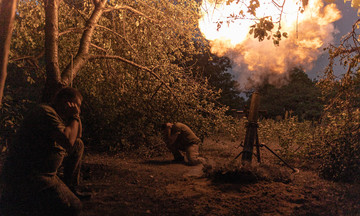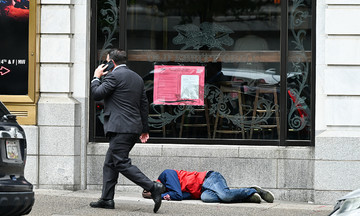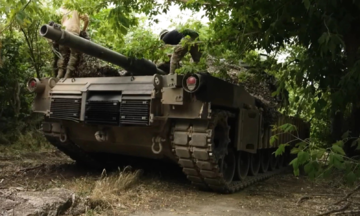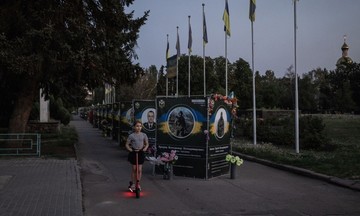"Relations used to be very good, we were like brothers," said Sai Boonrod, 56, one of hundreds of Thai people sheltering at a temple in Kanthararom town after evacuating her border village on 26/7.
"But now things have changed," she added. "I just want the fighting to end so we can be like brothers again."
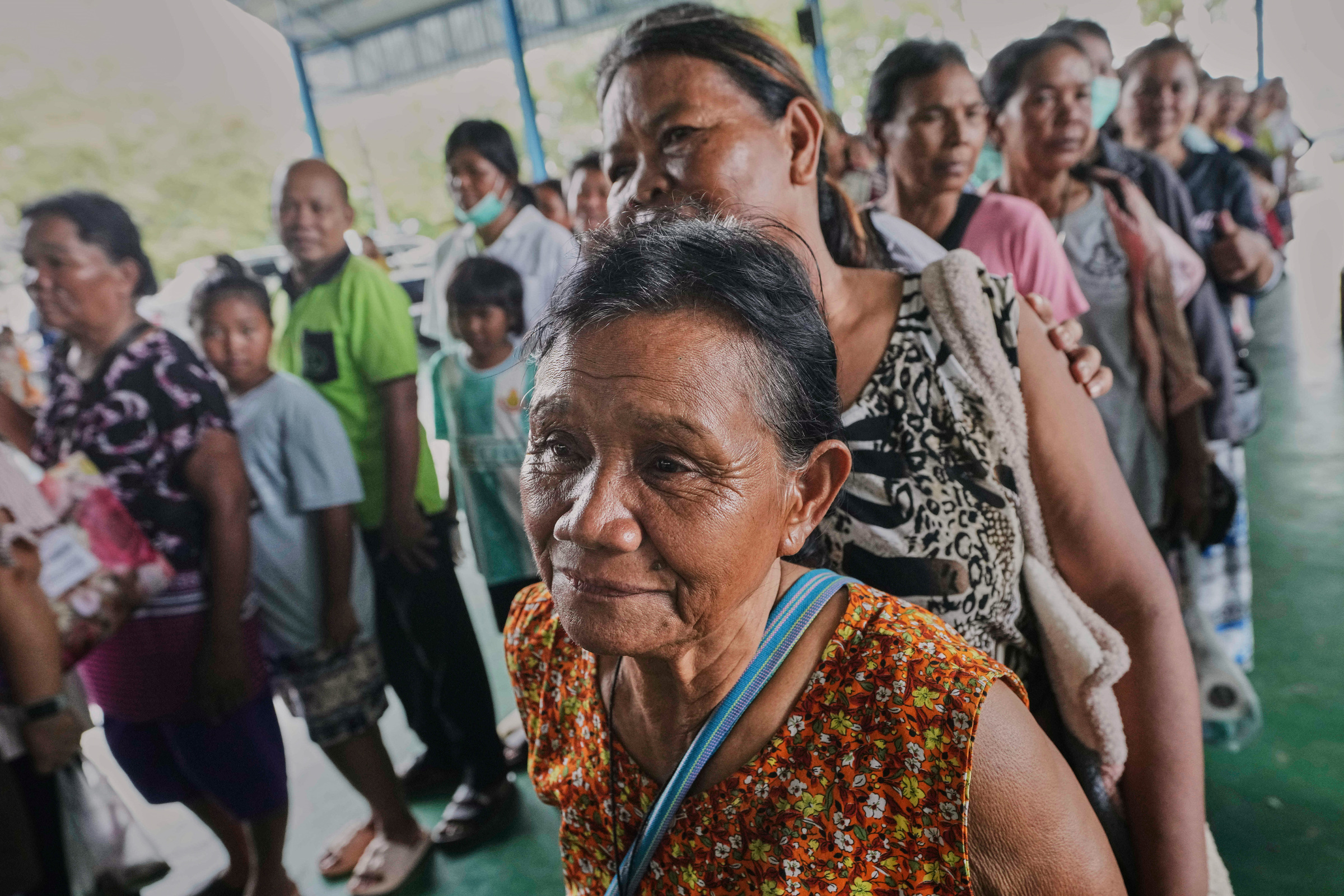 |
Thai people queue for food at an evacuation center in Surin province on 26/7. Photo: AP |
Thai people queue for food at an evacuation center in Surin province on 26/7. Photo: AP
A similar scene is unfolding 150 km away across the Cambodian border. Hundreds of evacuees are gathered in makeshift tents at a temple, surrounded by emergency food rations and hastily packed clothing.
"We are neighbors, we want to be friends," said a 50-year-old evacuee at the Phumi Bak Thkav temple. "But they are attacking us. We had to leave our homes and flee."
Thailand and Cambodia share an 800 km border, but several points remain disputed. Serious clashes erupted between 2008 and 2011, resulting in at least 28 deaths.
But Boonrod said the violence has "never been this intense" before.
She is among more than 170,000 people evacuated from border areas in both countries, but her husband stayed behind to help guard neighbors' livestock and property.
"I want them to negotiate, to cease fire quickly so the elderly can return home and children can go back to school," she said.
The United Nations Security Council held an emergency meeting on 25/7 to address the fighting between Cambodia and Thailand. Both sides expressed willingness for a ceasefire but accused each other of undermining peace efforts.
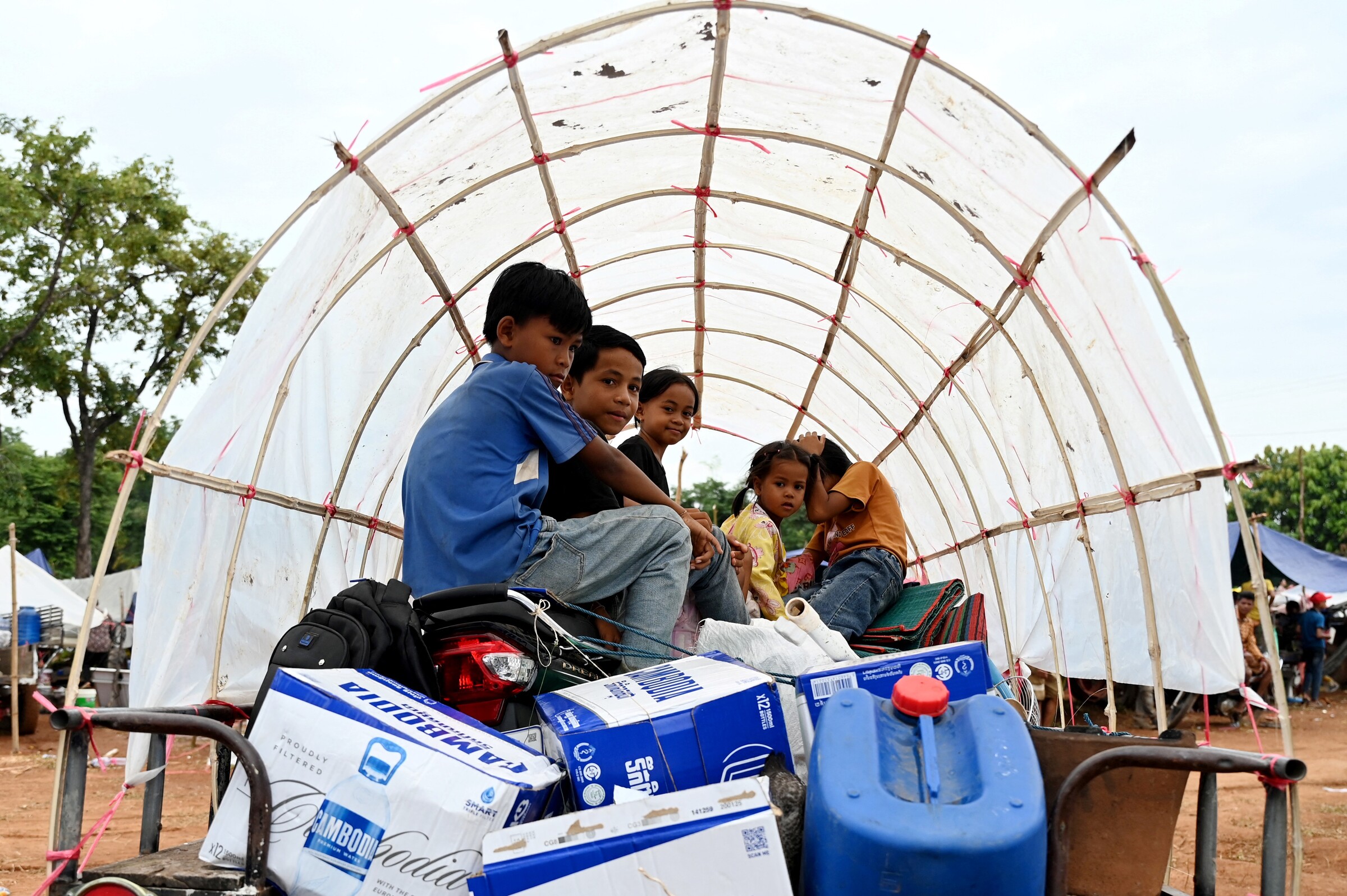 |
Evacuated children sit on a truck at a temple in Oddar Meanchey province, Cambodia, on 26/7. Photo: AFP |
Evacuated children sit on a truck at a temple in Oddar Meanchey province, Cambodia, on 26/7. Photo: AFP
At 73, Suwan Promsri has lived through multiple border tensions, but he says this confrontation is "very different." Thai resentment towards Cambodians is escalating, fueled by online posts that are exacerbating the situation.
The conflict is also accompanied by a wave of fake news and misinformation online from both sides.
"Before the internet, I didn't feel much," Promsri said. "But social media has really incited resentment."
Despite these divisions, he and those around him echo the calls for peace from Cambodians across the border.
"I want the government to realize that people along the border are suffering. Life is very difficult," he said. "I hope the authorities will negotiate to end the fighting as soon as possible."
Vu Hoang (AFP)









